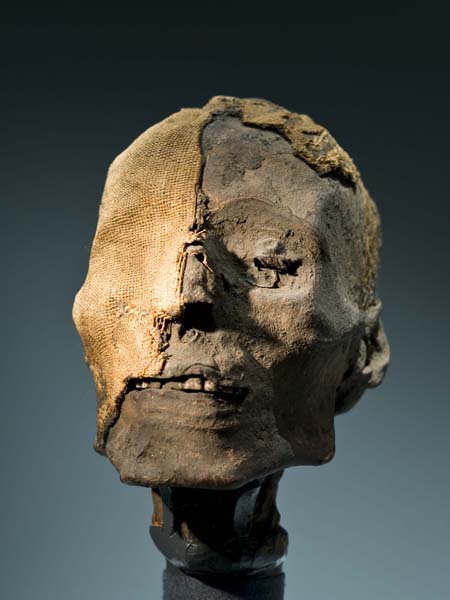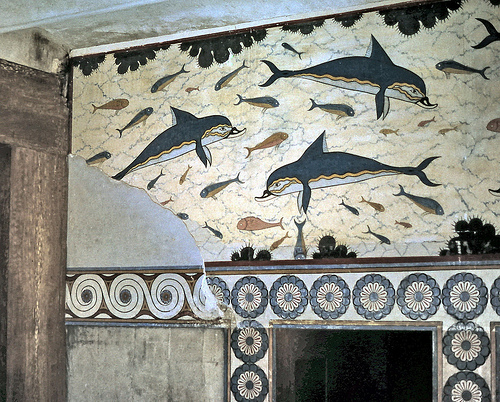University of Alberta professor of anthropology Sandra Garvie-Lok is on a CSI-style hunt for answers to a 1,500-year-old crime. Her victim: John Doe, an unidentified male with severe cranial trauma, killed at the ancient Greek city of Nemea during the Slavic invasion of Greece in the 6th century AD. The verdict: murder, most likely but how and why? Robbery has already been ruled out the unfortunate soul, whose cadaver was discovered crushed in a small, graffiti-stained tunnel entrance, had cash and other possessions on him. Was he perhaps slain in battle, seeing as he appears to have been an eye-witness…
-
-
‘Alexander‘ – even today, 23 centuries after his death, his name still has the power to inspire. His achievements have stood the test of time and remain amongst the most remarkable in the whole annals of military history. With an army of typically only around 40,000 men, he conquered the largest, richest and most powerful empire the world had ever seen; and all of this in less than a decade. When Alexander became king, his military career began when he launched a campaign against Macedonia’s northern neighbours. This is a campaign that we know little about, but we can assume…
-
Tickets went on sale at the weekend for the premiere of Mummies of the World the largest single collection of mummies ever brought together in one exhibition, and the very first exhibition of its kind to be staged in the United States. Opening on July 1, itll take place at the California Science Centre in Los Angeles, and run for a limited time, before moving on to tour an as yet undisclosed string of museums around the US for up to three years. Organised by American Exhibitions Inc. (AEI), in association with Reiss-Engelhorn Museums (REM) of Mannheim Germany, the exhibition…
-
Attribution: Photo by Ann Key Dates 2550 BC Dated between 2700 and 2400 BC This figurine of a woman is Cycladic (Keros-Syros culture), dated to 2700-2400BC and said to be from Syros. Compared to other figurines from that type, it is rather large and clumpsy and made from a strange material. Most of the Cycladic figures are made from white marble, but this one is carved from compacted volcanic ash, presumably from the island of Thera (Santorini). Perhaps because it was produced on one of the few islands in the Cyclades where marble is not found. The left eye of the figure…
-
“Number rules the universe.” – Pythagoras Astronomy may already have been in rude health by the time the ancient Greeks built their fearsome empire, but it was the Hellenistic world which gave us some of the most radical – and accurate – foretelling of the universe. And it was the Ionian mathematician Pythagoras who formed some of the most intriguing conclusions about the heavens. “Philosophy begins with Thales.” – Bertrand Russell Pythagoras was far from the first thinker to stun the Greek empire with his observations of the planets, having been beaten to that title by the Milesian philosopher Thales.…
-
Excavating physical remains that confirm the existence of a civilization only described in legend: it’s the dream of every archaeologist, and Sir Arthur Evans is one archaeologist for whom the dream came true. The year was 1900; the location was the outskirts of the modern day city of Heraklion, on the Greek island of Crete. The ruins Evans extracted from its baked earth were those of the Palace of Knossos, a spectacular Bronze Age citadel from which the dapper British antiquarian was able to begin uncovering and piecing together the forgotten history of one Europe’s first advanced civilizations. He christened…
-
It’s the kind of myth that has always had the power to fascinate people: a beautiful, wealthy and sophisticated ancient city is swallowed up by forces beyond man’s control, destroyed by the sea and earthquakes. There are examples around the world of these mythical submerged cities. We not only have Atlantis somewhere in the Atlantic Ocean, but in Taiwan there’s the legend of the submerged Mudalu, in Wales there is a drowned city called Cantre’r Gwaelod and a similar story tells the tale of Ys, a drowned city off the coast of Brittany in France. They are all myths that…
-
Attribution: Martha Nell G Key Dates 1901 – The Phoebe A Hearst Museum of Anthropology was founded Berkeley United States Key People Phoebe A Hirst George Reisner The Museum was founded in 1901 by Phoebe Apperson Hearst, who also funded George Reisner’s exhibitions. Today, the Hearst houses the oldest and largest anthropological collection in the Western US, preserving and interpreting a global record of material culture as represented by more than 3.8 million catalogued objects, the largest of which are the California collections. The Hearst Museum has an extensive collection of approximately 20,000 ancient Egyptian artifacts, with a special emphasis on predynastic…
-
I you go sightseeing in London after a night out, stare up at Big Ben to find its clock missing, you might conclude you’ve overdone it on the Metaxa. But no: according to the new campaign video from bringthemback.org, Britain’s best-known clock was taken by Greek multi-millionaire Aristotle Elginiadis. In a month’s time the video – a call for the return of the Elgin Marbles (what else) – has amassed nearly half a million YouTube views, with little sign of its popularity waning. The campaign video kicks off with a breaking news report: Big Ben’s clock has been stolen! Avid…
-
My generation has grown up almost exclusively exposed to war in the Middle East. Two wars in Iraq, one in Afghanistan and countless battles between neighbouring nations in the region. The Middle East has been a battleground since time began – and now you can see exactly who has conquered it through the ages with mapsofwar.com‘s great-looking 90 second walkthrough. The map begins in 3,000 BC with the invention of the Egyptian Empire – though there’s no mention of the Sumerian states which comprised the Cradle of Civilization – and shows the spread of the Hittites, Israelis, Assyrians and Babylonians…






